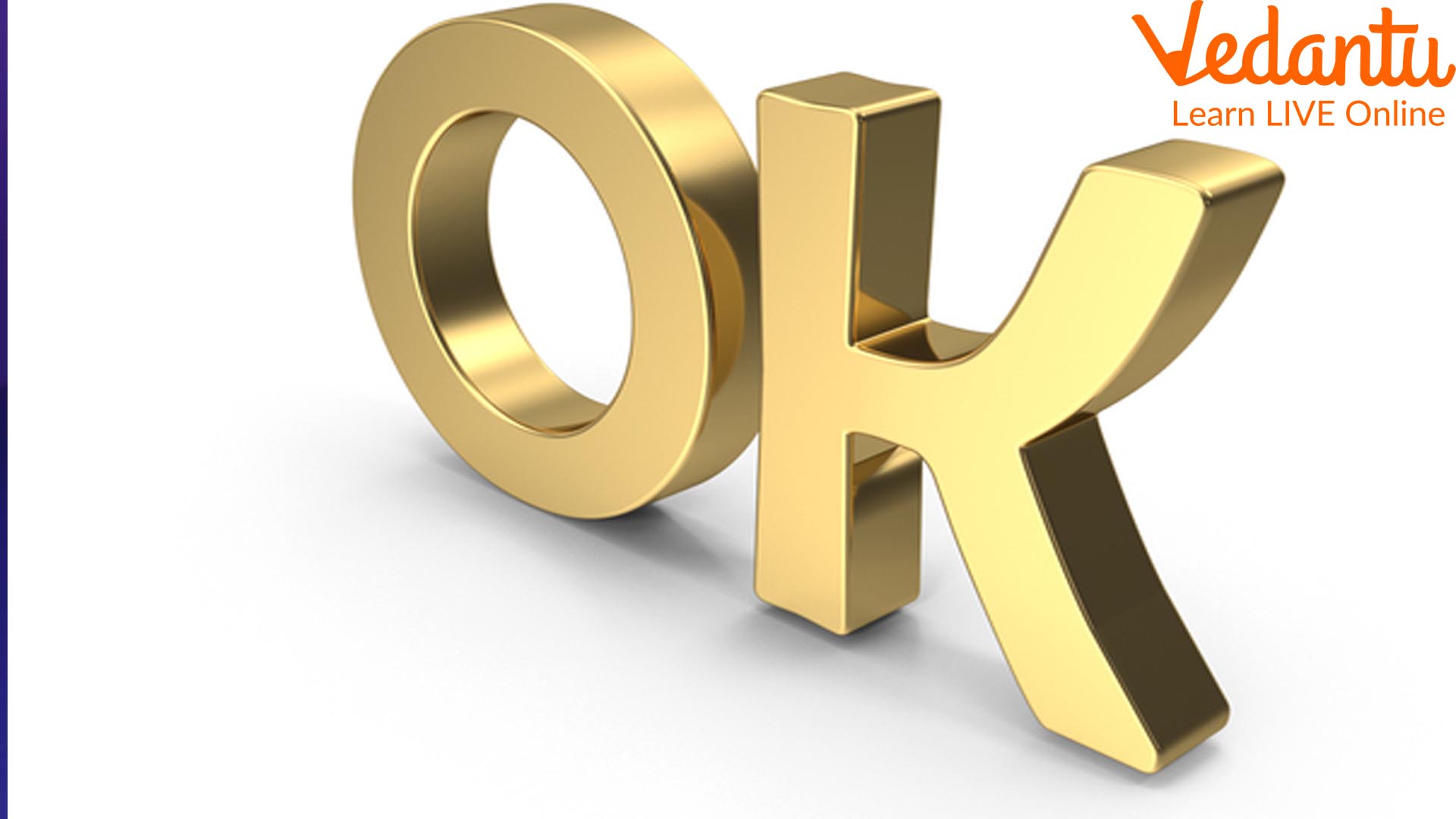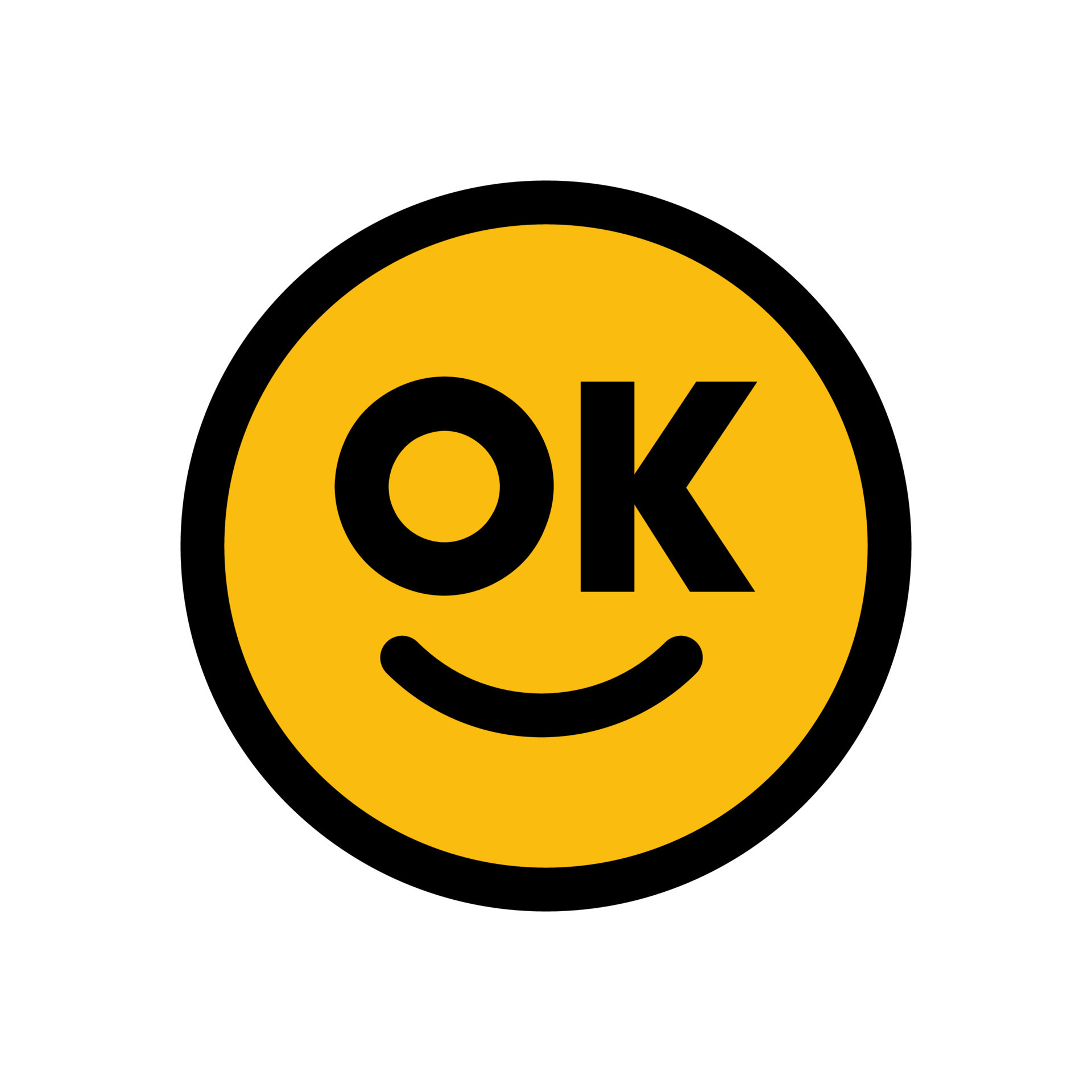Have you ever stopped to think about a word you use every single day, perhaps without even realizing it? It's a word that crosses languages and cultures, a simple sound that carries so much weight. We're talking about "OK," and for anyone curious about how a simple two-letter word became so incredibly powerful, you're in for a treat. This little word, which some might even search for as "ok ko oc," is truly a global phenomenon, and its story is actually quite interesting, you know?
It's pretty amazing, when you stop and consider it, how "OK" has just woven itself into the very fabric of how we talk and interact. From a quick nod of agreement to a calm assurance that things are just fine, this word pops up in so many different situations. It’s a linguistic chameleon, if you will, always fitting right in, no matter the conversation. So, what makes this word so special, and why does it feel so universal?
This article will actually pull back the curtain on "OK," exploring where it came from, what it really means, and how we use it every day. We'll look at its journey from its beginnings to its current place as one of the most recognized words on the planet. Get ready to truly appreciate this small but mighty word, which, as a matter of fact, has a surprisingly rich history.
Table of Contents
- What is 'OK' Anyway?
- The Curious Case of 'OK's Origin
- Using 'OK' in Everyday Life
- Why 'OK' Remains So Important
- Frequently Asked Questions About 'OK'
What is 'OK' Anyway?
When we talk about "OK," we're actually referring to an English word that truly originated in American English. It's a word that has spread far and wide, used to show approval, or maybe acceptance, or even just agreement. You'll find it in all sorts of conversations, sometimes just as a quick way to say "yes" or to confirm something. It's a bit like a linguistic Swiss Army knife, always ready for action, you know?
A Word of Many Forms
It's quite interesting to consider that "OK" isn't just spelled one way. In fact, it has quite a few spelling variations, like "okay," or "okeh," and even "o.k." There are many others, too, which just goes to show how adaptable this word truly is. Despite these different appearances, they all mean the same thing and can be used interchangeably, whether you're writing something informal or something a bit more formal. It's almost as if the word itself doesn't mind how it's written, as long as it gets the message across, right?
What's pretty cool is that "OK" itself is actually the original preferred spelling. So, when you see "okay," it's just another way to write the same powerful little word. This flexibility, in a way, might be part of why it's become so incredibly popular around the globe. It's like a universal sign that just makes sense, no matter the exact form it takes. This makes it very easy for people to pick up and use.
The Essence of 'OK'
At its core, the meaning of "OK" is simply "all right." It's used to mean that something is good, or perhaps correct. In many situations, it can even be used instead of the word "yes." It’s a very versatile word, really, capable of conveying a simple affirmative or a more complex sense of well-being. It's a bit like a linguistic shorthand for saying "everything is in order," or "I agree," which is quite useful, honestly.
It's also, quite simply, the opposite of the word "bad." So, if something isn't "bad," it's "OK." This makes it a really straightforward way to express a neutral or positive state. You might say, "The food was OK," meaning it wasn't amazing, but it wasn't awful either. This basic function is probably why it's so easily understood across so many different languages and cultures, because, you know, everyone understands good and bad.
The Curious Case of 'OK's Origin
For many, many years, the true origin of "OK" was a topic of much discussion. It's one of those words that everyone uses, but few people actually know where it truly came from. There were lots of different theories about how it started and what it originally meant. It's kind of like a linguistic mystery, with clues scattered across history, and people trying to piece together the real story, you know?
The Great Dispute
The beginnings of "OK" were really quite disputed for a long time. People had all sorts of ideas about its original meaning and where it popped up first. Some thought it came from one place, others from another, making it a rather fascinating puzzle for language experts. It's a bit like trying to figure out an old riddle, with many possible answers but only one truly correct one, or so it seems.
These theories about the word's beginnings and its original meaning really varied quite a bit. There were ideas linking it to different languages, or perhaps to specific historical events. This ongoing debate just made the word even more intriguing, adding a layer of mystery to something so commonly used. It's actually pretty cool how a simple word could have such a complex backstory, isn't it?
From Choctaw to Boston Newspapers
The story of "OK" touches upon some truly unexpected places. We're talking about everything from the Choctaw language, which is quite interesting, to a Boston newspaper. Imagine that journey! It really highlights how diverse the influences on language can be, and how words can travel through very different communities before becoming widely accepted. It's a very unique path for a word to take, honestly.
So, the theories link "OK" to some pretty specific instances. One popular idea, for instance, points to its use as an abbreviation in a Boston newspaper in the 1830s, meaning "all correct" (humorously misspelled as "oll korrect"). Then there's the connection to the Choctaw word "okeh," which means "it is so." These different threads, in a way, show how language can pick up influences from all sorts of places, creating something new and enduring. It's pretty neat how these seemingly unrelated things could possibly contribute to one widely used word.
Using 'OK' in Everyday Life
The beauty of "OK" lies in its incredible adaptability. It's a word that truly fits into so many different conversational settings, making it a go-to for quick responses or for getting a point across. You'll hear it constantly, perhaps without even noticing, because it just feels so natural. It's almost like a linguistic glue that holds conversations together, in a way.
Showing Agreement and Acceptance
One of the most common ways we use "OK" is to simply show that we agree with something, or that we agree to do something. For example, if someone asks, "Can you help me with this?" you might just say, "OK," and that's it. It’s a very straightforward way to signal your consent or your willingness. This simple affirmation is pretty powerful, actually, because it clears up any doubt.
It's also used to express acceptance. If a plan changes, and you're fine with it, you might say, "That's OK." This shows you're not bothered by the adjustment and that you're on board. This little word makes it very easy to communicate that everything is just fine with you, and that you're ready to move forward. It's a really efficient way to communicate, you know?
Asking for Understanding
Sometimes, "OK" is used to ask for agreement, or perhaps approval, or even just understanding. You might say, "We'll meet at seven, OK?" This is a way to check if the other person is on the same page and if they're comfortable with the arrangement. It's a polite little check-in, making sure everyone is clear and happy. This use is pretty common, too, in many conversations.
It can also be a way to gauge if someone understands what you've just said. If you've explained something a bit complex, you might finish with, "So, you get it, OK?" This invites them to confirm their comprehension, which is really helpful for clear communication. It's a bit like throwing the ball to them to make sure they catch it, so to speak.
Adding Emphasis
Interestingly, "OK" can also be used for emphasis, especially at the beginning of a statement. For instance, you might start a sentence with, "OK, listen up, everyone." Here, "OK" isn't just about agreement; it's about getting attention and signaling that something important is about to be said. It sets the stage, you know, for what's coming next.
This use really highlights the word's versatility. It's not just a filler; it's a tool to direct the flow of conversation and to underscore the importance of your words. It's a subtle but effective way to command a little bit of attention before delivering your main message. This makes it a very useful word in all sorts of situations, honestly.
The Opposite of 'Bad'
As we talked about, "OK" very simply means "all right," and it's quite literally the opposite of "bad." This makes it a very straightforward way to describe a neutral or satisfactory state. If a situation isn't great, but it's not terrible either, you just say, "It's OK." It’s a very handy word for those in-between moments. This clarity is a big part of its appeal, you know?
This basic, clear-cut meaning helps "OK" maintain its universal appeal. It's a word that doesn't require much interpretation; its message is pretty clear. This makes it a go-to for quick assessments or simple affirmations in countless daily interactions. It's a bit like a linguistic anchor, always bringing things back to a clear, understandable point.
Why 'OK' Remains So Important
The enduring popularity of "OK" is really quite remarkable. From its origins, which, as a matter of fact, were once quite murky, to its current status as a truly global word, it has shown incredible staying power. It's a word that transcends language barriers, often understood even by those who don't speak English. This makes it a powerful tool for communication across cultures, which is pretty amazing, if you think about it.
Its simplicity is definitely a key factor in its success. It's short, easy to say, and carries a clear, unambiguous meaning. This efficiency makes it perfect for the fast pace of modern communication, where quick confirmations and simple agreements are needed constantly. It's a bit like a linguistic shortcut that everyone understands, so it just works, you know?
Moreover, "OK" has a certain friendliness to it. It's generally a positive or neutral word, rarely carrying negative connotations unless paired with specific tone or context. This makes it a safe and approachable word to use in almost any situation, fostering a sense of ease in conversation. It's a very reassuring word, too, in many ways.
The journey of "OK" from a curious American abbreviation to a worldwide phenomenon is a testament to its practical utility and its universal appeal. It shows how a word can evolve, adapt, and become an indispensable part of how we connect with each other, no matter where we are. It’s pretty cool, honestly, to think about how much power this little word holds. Learn more about language and communication on our site, and perhaps link to this page the history of common phrases for more interesting facts.
Frequently Asked Questions About 'OK'
Here are some common questions people often have about the word "OK," which, as a matter of fact, is quite a fascinating topic.
What does 'OK' stand for?
While many theories exist, and it's been disputed for years, "OK" is widely believed to be an abbreviation of "oll korrect," a humorous misspelling of "all correct" from the 1830s. It doesn't really stand for anything in a literal sense today, but its original playful meaning has kind of stuck, you know?
Is 'OK' and 'okay' the same word?
Yes, absolutely! "OK" and "okay" are the same word and can be used interchangeably in both informal and formal writing scenarios. In fact, "OK" is the original preferred spelling of the word. So, you can pick whichever one you like, and it'll be just fine, really.
Where did the word 'OK' originally come from?
The origin of "OK" has been a topic of much debate for many years. Theories about its beginnings and original meaning point to various sources, including its use in a Boston newspaper in the 1830s as "oll korrect," and even connections to the Choctaw language word "okeh," meaning "it is so." It’s a bit of a linguistic mystery, honestly, with a few different plausible stories.



Detail Author:
- Name : Dorothea Lubowitz
- Username : darby.kutch
- Email : oda.swift@ondricka.org
- Birthdate : 2004-07-17
- Address : 8825 Conroy Trail Suite 781 East Adonisbury, MS 54248-2612
- Phone : +1-262-453-8521
- Company : Turner Ltd
- Job : Industrial Engineer
- Bio : Distinctio et natus voluptatem qui. Quia consequatur voluptatibus velit nihil. Ex ducimus est omnis cumque.
Socials
tiktok:
- url : https://tiktok.com/@lavon_hane
- username : lavon_hane
- bio : Dolorum nam iusto neque maiores consequuntur.
- followers : 1129
- following : 911
twitter:
- url : https://twitter.com/lavonhane
- username : lavonhane
- bio : Magni vero ut sint. Quos accusantium quo maxime id. Recusandae est est optio placeat quia aperiam quas.
- followers : 2465
- following : 2890

